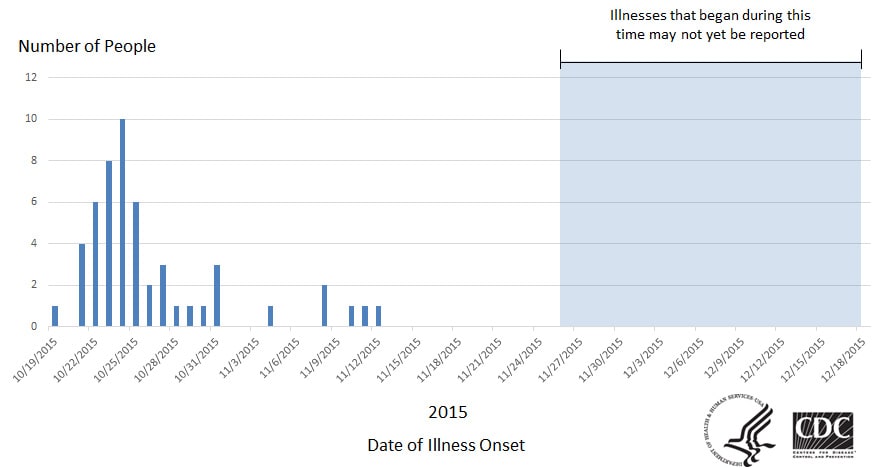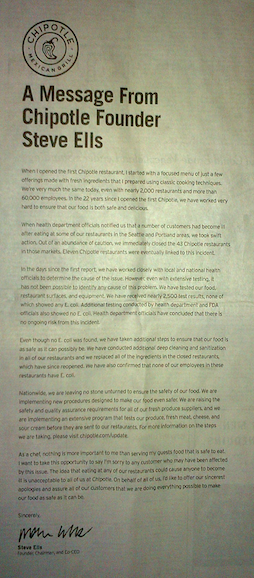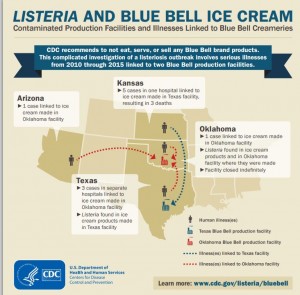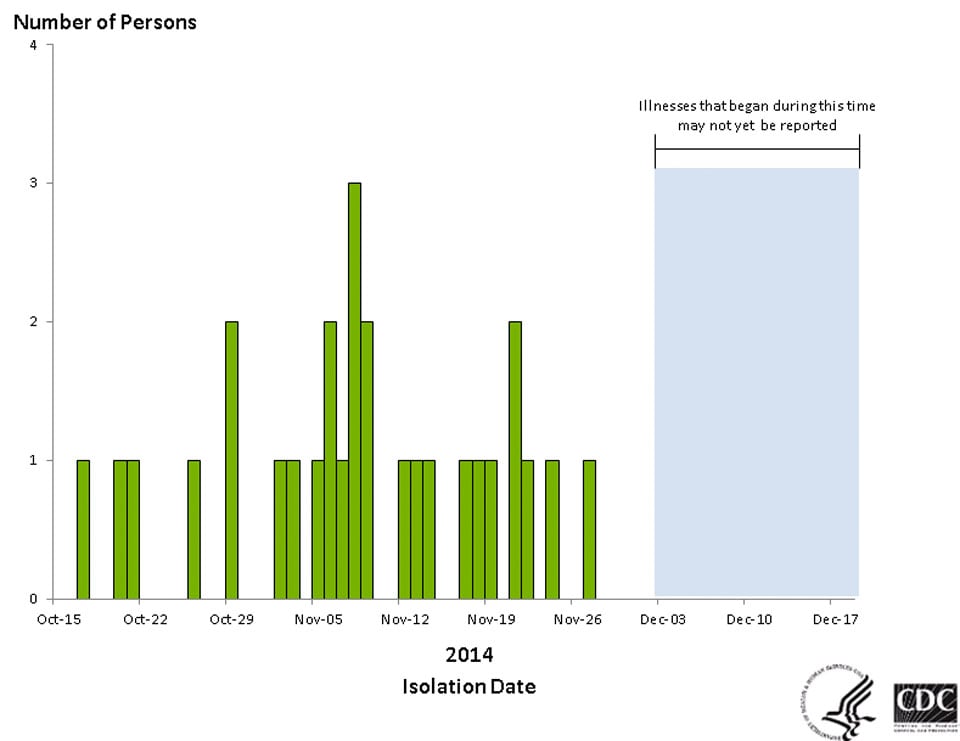Chipotle’s food safety problems: an update
I’m fascinated by reports of Chipotle’s ongoing problems with foodborne illness.
- The main interest of the press in these episodes is their effect on Chipotle’s stock prices.
- The outbreaks have been linked to a bunch of different pathogens: E. coli O157:H7, E. coli STEC O26, Salmonella, norovirus, and, possibly, hepatitis A. This means they are due to different causes at different outlets.
- The food, foods, or individuals responsible for these outbreaks are uncertain, making them hard to know how to prevent.
- Hence: conspiracy theories.
The outbreaks
The most recent CDC report (December 21) counts 53 cases of E. coli 026 from 9 states, with 20 hospitalizations.

The FDA reports (December 22) that there are 5 more recent cases of illness caused by a different type of E. coli 026 among people eating at Chipotle.
Food Safety News summarizes the previous Chipotle outbreaks.
- Seattle: July 2015, 5 people sick from E. coli O157:H7, from unknown food source.
- Simi Valley, CA: August 2015, more than 230 sick from norovirus (most likely from an ill worker).
- Minnesota: August and September 2015, 64 people sick from Salmonella Newport (tomatoes?).
- Boston: December 2015, at least 136 people sick from norovirus.
The consequences
- Nearly 500 people have become ill after eating in a Chipotle since July this year.
- Stock prices are down 30 percent from a high of $757.77 in August.
The conspiracy theory
The title says it all: “ANALYSIS: Chipotle is a victim of corporate sabotage… biotech industry food terrorists are planting e.coli in retaliation for restaurant’s anti-GMO menu.”
I don’t think so.
You don’t need conspiracy theories to explain poorly designed and executed food safety procedures.
What is to be done?
The New York Times attributes the inability to identify the food source to Chipotle’s record-keeping:
One of the challenges here has been that we have been able to identify the restaurants where people ate, but because of the way Chipotle does its record-keeping, we have been unable to figure out what food is in common across all those restaurants,” said Dr. Ian Williams, chief of the outbreak response and prevention branch of the C.D.C.
That, at least, should be an easy fix.
For the rest, Chipotle has initiated a new food safety program, and has recruited a leading food safety expert, Mansour Samadpour, to set it up. I met Samadpour at Earthbound Farms when he was helping that company prevent further problems after the spinach outbreak of 2006. He knows what he his doing.
Chipotle needs to follow his advice—in letter and in spirit.
Food safety lawyer Bill Marler advises Chipotle to follow a 12-step program to create an effective culture of food safety from top down and bottom up within the company. For example, he advises the company’s CEO, Steve Ells to say:
- It is time to have a culture of food safety added to the “integrity” of the food. I have now learned that bacteria and viruses do not care a whit if my food’s ingredients are organic, sustainable, non-GMO and humanely raised.
- I am going to hire a vice-president of Food Safety. That person will report directly to me and to the Board of Directors. Like Dave Theno being brought in to address the Jack-in-the-Box crisis of 1993, this person will have the resources and access to decision makers to create a culture of food safety from the top down.
- The company’s new mantra – “Safe Food with Integrity” – will be completely transparent and shared with all – including our competitors.
Will Ells take his advice? I hope so.




